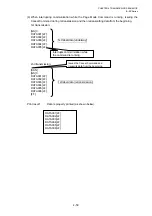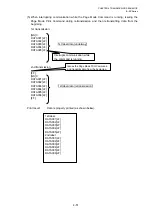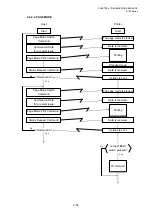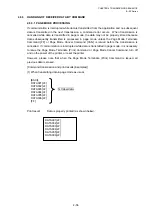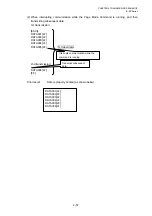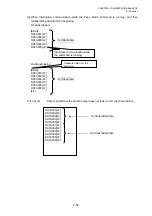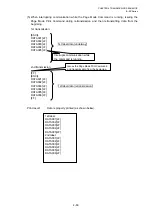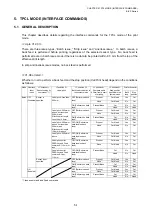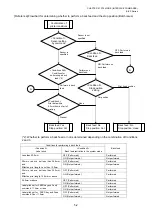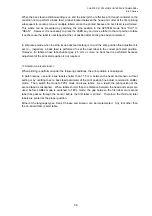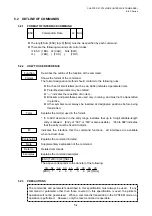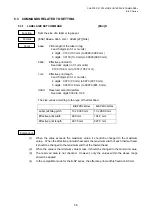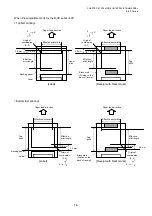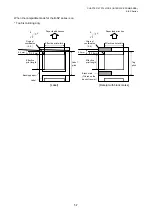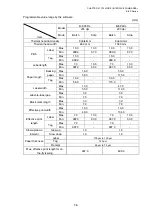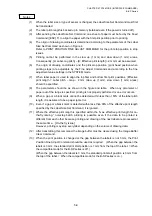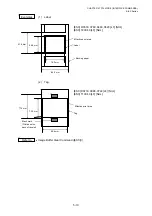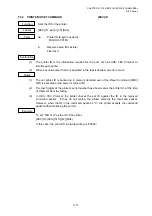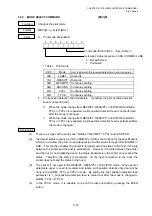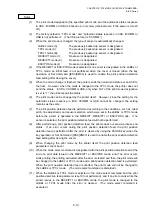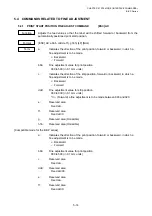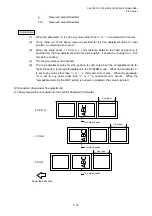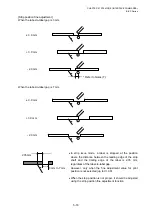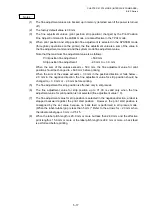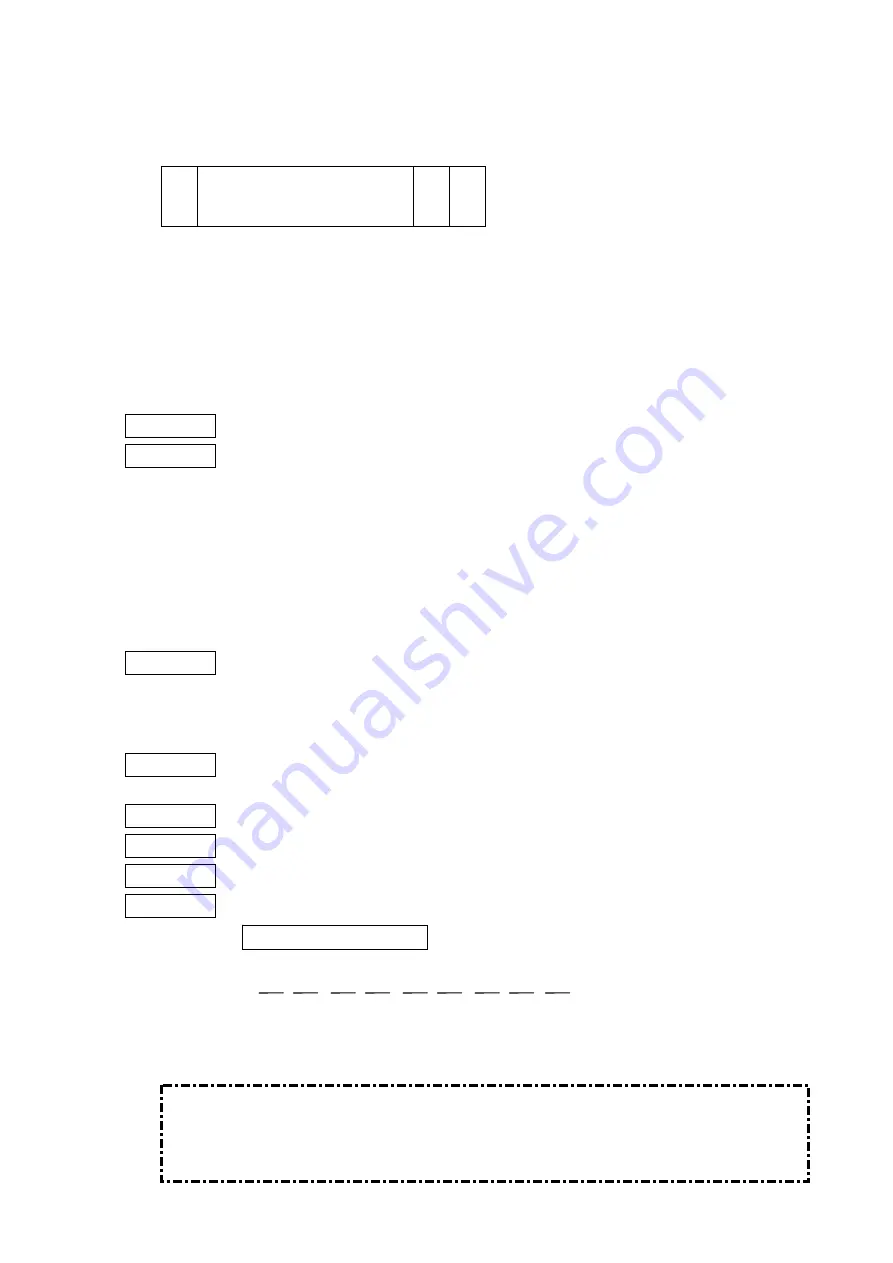
CHAPTER 5 TPCL MODE (INTERFACE COMMANDS)
B-EP
Series
5-4
5.2 OUTLINE OF COMMANDS
5.2.1
FORMAT OF INTERFACE COMMAND
z
The length from [ESC] to [LF] [NUL] must be as specified by each command.
z
There are the following two kinds of control codes:
c
ESC (1BH), LF (0AH), NUL (00H)
d
{
(7BH), | (7CH), }
(7DH)
5.2.2
HOW TO USE REFERENCE
Function
Describes the outline of the function of the command.
Format
Shows the format of the command.
The format designation method should conform to the following rules:
z
Each set of small letters (such as aa, bbbb) indicates a parameter item.
z
Parenthesized items may be omitted.
z
“---” indicates the repetition of an item.
z
Brackets and parentheses are used only in coding, and must not be transmitted
in practice.
z
Other symbols must always be inserted at designated positions before being
transmitted.
Term
Explains the term(s) used in the format.
* “0 to 999” described in the entry range indicates that up to 3-digit variable-length
entry is allowed. (Entry of “001” or “009” is also possible.) “000 to 999” indicates
that the entry must be fixed at 3 digits.
I/F
Indicates the interface that the command functions. All interfaces are available
when not described.
Explanation
Explains the command in detail.
Note
Supplementary explanation of the command.
Refer to
Related commands
Examples
Explains the command examples.
The above corresponds to the transfer of the following:
5.2.3 PRECAUTIONS
ESC
Command & Data
LF NUL
[ESC] T20C30 [LF] [NUL]
1B 54
30
30
43
33
32 0A
00
[ESC] T 2 0
C
3
0 [LF] [NUL]
The commands and parameters described in this specification must always be used. If any
command or parameter other than those covered in this specification is used, the printer’s
operation will not be guaranteed. When a command is transmitted in the SYSTEM mode, no
operation is performed. However, only the reset command is operable.

